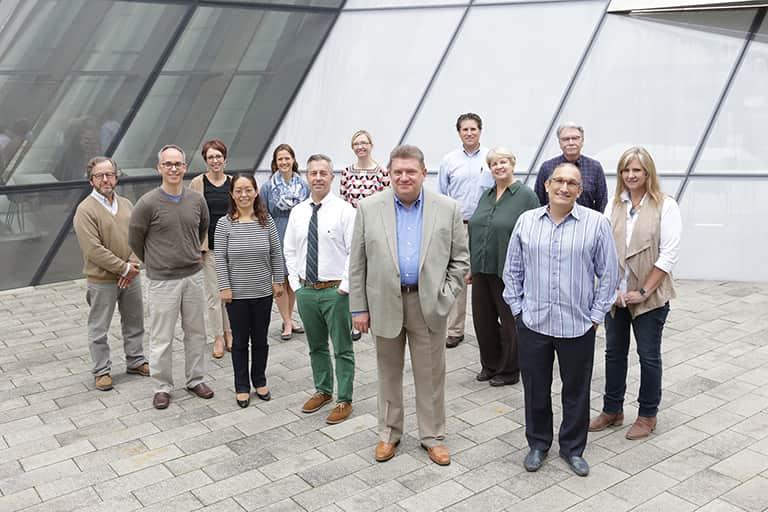For 1 percent of people in the United States, the simple act of saying hello can cause stress. Even more children—about 5 to 8 percent—experience difficulties in daily communication caused by the speech fluency condition known as stuttering.
Michigan State University has been a long-time champion in the study, research and clinical practices in the field of stuttering and other language, speech and voice disorders. Professor Emeritus Paul Cooke pursued extensive research into stuttering, and an ongoing study abroad program continues to immerse students into practices and research on an international scale.
In 2017, the Department of Communicative Sciences and Disorders within the College of Communication Arts and Sciences began strengthening programs and partnerships that will impact the nature and treatment of stuttering on a regional, national and international scale.
In the spring, J. Scott Yaruss joined the CSD team to focus on helping speech-language pathologists improve their ability to provide meaningful and lasting support for people who stutter. Professor Yaruss brings decades of experience in working with people with fluency disorders through research and clinical practice, including his most recent work with the University of Pittsburgh.
"There's lots of excitement around our department here at MSU," says Yaruss. "We have the opportunity to draw on the expertise of our faculty interested in stuttering, and to look at neurological development using different methods. There's pervasive interest across the department, as well as with other universities and organizations for strong partnerships."
Road to innovation
Yaruss says he noticed first-off the incredible camaraderie and collaboration among members of the CSD faculty. The growing team, he says, will examine the nature and treatment of stuttering, and leverage new and existing technological capabilities in the process.
Among the team members are Adjunct Assistant Professor Soo-Eun Chang, an assistant professor at the University of Michigan who maintains a research lab at MSU. Chang conducts large-scale longitudinal studies using multimodal neuroimaging methods to examine the neural bases of childhood stuttering, while Assistant Professor Amanda Hampton Wray examines a range of communication disorders, including stuttering, by measuring electrophysiological activities.
Other contributors in stuttering research include Assistant Professor Fan Cao who explores neural bases of phonological deficits in language and reading disorders. Associate Professor Laura Dilley examines how neurocognitive systems for processing of speech may be different for people who stutter compared with those who don’t. In 2018, new faculty Bridget Walsh will come on board to apply near-infrared spectroscopy and other methods to study neural processing of people who stutter. Yaruss himself will focus on the neurology of stuttering using a range of methods, as well as applied research on clinical intervention.
Yaruss adds that the CSD team plans to develop programs that help future and current speech pathologists increase their comfort level working with people who stutter. He also looks to strengthen partnerships across universities, including several in Michigan and throughout the Midwest, to research stuttering and other fluency disorders.
"We have an opportunity to develop an emphasis that encompasses many aspects of stuttering, and to bring it together through basic and applied practices," he says. "Our field has expanded in so many ways. We can make strong cases for helping people who stutter lead a full life."
Amanda Hampton Wray concurs.
Like Yaruss, she understands that stuttering in children can contribute to social isolation and bullying, and negatively affect academic success. In adults, people who stutter frequently are channeled into jobs with fewer opportunities for advancement, or have difficulty doing everyday things like ordering off a menu or engaging in casual conversation.
"Stuttering has a significant impact on the way a person interacts and communicates in our world," Hampton Wray says. "Communication is critical for quality of life and social interaction. If we can find ways to alleviate someone's stress and anxiety, and improve their quality of life, we make a positive impact on society."
Hampton Wray came to MSU three years ago, and along with Chang, was one of just two faculty with a research focus on stuttering at MSU.
"It's really exciting to be in a place where there will be lots of people looking at the same question but from different angles," says Hampton Wray. "We've been very fortunate to attract some of the top researchers here. When we have more people thinking about the same thing, it builds collaboration and encourages brainstorming. That leads to innovation and our ability to impact the field.”
